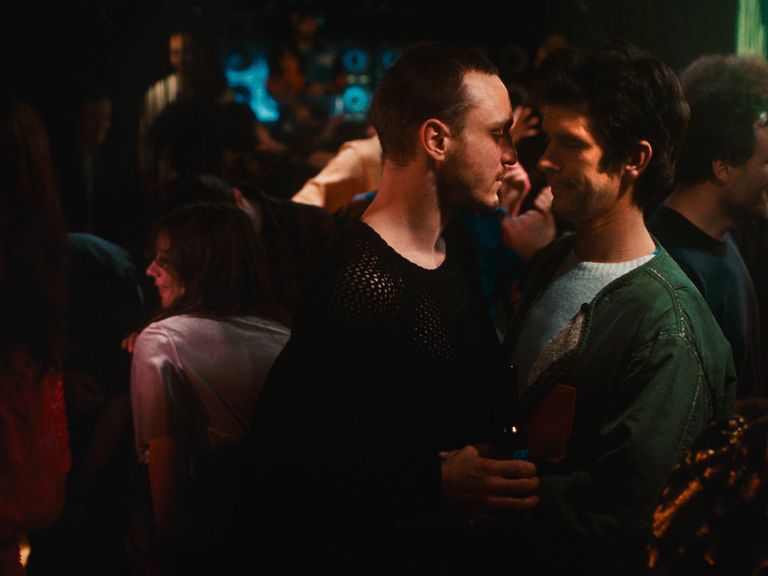There comes a time when you must date the worst person. Instantly charming (though not half as charming as they believe themselves to be), enthusiastic and caring, they come into your life, both dream-like and out of nowhere. And you will watch those qualities shift: excuses are made about boring things, work or the weather, until this person disappears completely, with an even more boring explanation, or more likely, none at all. If you have not dated this person, your best friend has, or else your colleague. Worst case scenario: this person is you. While they may not be fun to experience, they do make for good art. And here is the excellent Passages, the latest film from Ira Sachs (Forty Shades of Blue, Married Life), about a very bad man named Tomas, played very well by Franz Rogowski.
Tomas is a hot, exacting German filmmaker married to an English printer Martin (Ben Whishaw). They live in Paris, they drink wine in a nice kitchen, they escape to their country house. But then, at the wrap party of his new film, Tomas sleeps with a teacher, Agathe (Adèle Exarchopoulos). To call it cheating betrays the open-endedness of this film, in which Sachs resists any urge towards definitiveness. Whatever the open-ness of Tomas and Martin’s marriage – who asked for it? What are the limits? – the heterosexual liaison does its damage. Over the next hour and a half, Tomas pushes away from Martin, falls in with Agathe, pulls away from Agathe, falls back in with Martin. He is ceaseless, undecided, hurtful.
What does Tomas want? The simple answer is, what he can’t have. But Sachs and co-writer Mauricio Zacharias explore more complex and modern causes than what might be defined blandly as narcissism in contemporary pop psychology. He misses Martin’s care and attention, of course, and reacts badly to some of Agathe’s domestic demands (which, really, aren’t demands at all but nice things). Most telling is his confession that he misses being in a gay relationship which, for Tomas, entails limitless freedoms. Throughout this spiral, Whishaw and Exarchopoulos play the secondary roles with admirable depth: robust deckchairs that have been whipped in a hurricane. But this is Rogowski’s film. The German actor’s face, both bratty and beyond his years, draws you in while simultaneously repulsing you.
Bad people have existed forever, but Tomas presents a very modern, neurotic view of masculinity: with everything he could wish for – a beautiful home, great knitwear, a creatively fulfilling career – he is crippled by options. Only when those possibilities, or to borrow the film’s title, passages, narrow, does Tomas begin to feel any consequence. That Sachs treats him as a fully-formed character, and not the villainous stereotype we have seen in so many righteous romantic dramas before, makes Passages a must-watch, akin to Joachim Trier’s The Worst Person in the World and Joanna Hogg’s The Souvenir.
The film is not as steamy as headlines would lead you to believe, but it does have a stand-out sequence (you will know the one I mean when it arrives), which makes the case for sex scenes, somehow now controversial among certain circles: yes, they can be pointless, yes, they can drive the plot, and yes, both cases are absolutely fine. Given the actors’ chemistry, you may hope for more. The film is talky, but we are grown-ups, and when it starts to flag at two thirds, the ending jolts into action, with a closing cycle ride for the ages. Perhaps you will feel some justice has been dealt to Tomas. Perhaps you would like more justice to be done. Perhaps, and isn’t this always the case with such people, you may no longer care.
‘Passages’ is out in cinemas 1 September
Henry Wong is a senior culture writer at Esquire, working across digital and print. He covers film, television, books, and art for the magazine, and also writes profiles.













